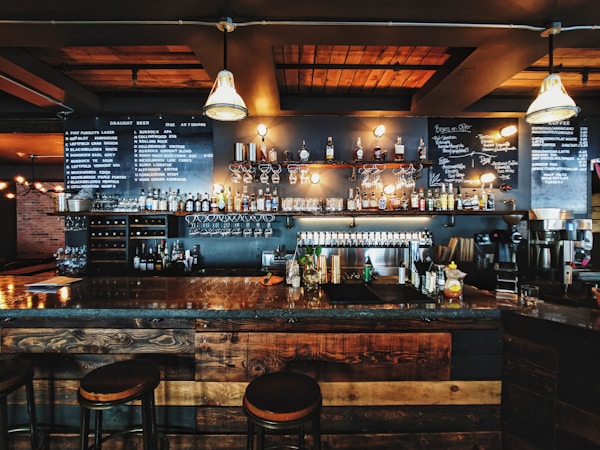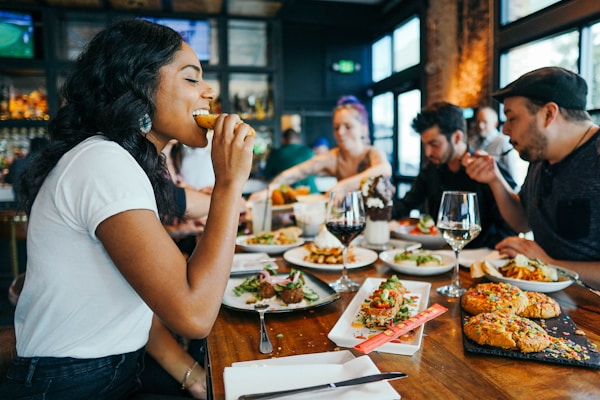Have you ever dreamed of owning your own restaurant? Or crafting incredible menus and fostering a superb dining experience for others to enjoy? The restaurant industry can be both rewarding and challenging, with plenty of success just waiting to be discovered if you know where to look. In this article, we will explore the basic steps involved in starting your own restaurant and how to navigate the world of culinary entrepreneurship. If you’re in need of some good advice, keep reading to learn more!
Finding the Perfect Location

One of the most important aspects of starting a successful restaurant is securing the ideal location. When looking for the perfect place, not only should you consider accessibility, visibility, and foot traffic, but also the area’s demographics and the type of clientele you wish to attract. For instance, if you are planning to open an upscale dining establishment, it would be advantageous to position your restaurant in a neighborhood with a higher average income. Collaborating with commercial real estate experts, such as commercial real estate in Charlotte, can ensure you find the best location for your unique needs.
While searching for a location, don’t forget to consider the costs involved. Aside from rent or mortgage payments, you also need to account for taxes, insurance, and maintenance fees. It is always recommended to discuss these matters with a financial advisor to make sure you are making the best decision for your business. Another crucial aspect is the interior space and layout design of your location. A well-thought-out and captivating interior design can significantly impact your clientele’s dining experience.
Building Your Menu and Sourcing Ingredients

When it comes to running a restaurant, the food is the main attraction. Developing a mouthwatering menu is integral to your brand and restaurant, so take your time and carefully curate your culinary offerings. Research the competition and the latest food trends to guarantee your menu stands out and appeals to your target clientele. Furthermore, incorporating themes, creating seasonal menus, or catering to specific dietary requirements can give your restaurant a unique selling point.
Sourcing high-quality ingredients is imperative for the success of your menu. Work with reputable suppliers and consider factors such as cost, convenience, delivery frequency, and quality when choosing your ingredients. Creating relationships with local farmers and specialty food purveyors can also be an excellent marketing tool for your restaurant, as it shows your commitment to supporting the community and using fresh, locally sourced ingredients.
Of course, no menu is complete without a thirst-quenching selection of beverages to accompany your dishes. Whether it is nonalcoholic drinks, wines, or craft beers, ensure you offer a diverse selection that complements and enhances your menu items. Partnering with local breweries or wineries can also give your restaurant a unique edge, as patrons will appreciate the homegrown touch.
Promoting Your Restaurant

No matter how delicious the food or appealing the ambiance is, the sustainability of your restaurant relies heavily on successful marketing and promotion. You will need to build a comprehensive marketing plan to generate awareness and attract patrons to your establishment. This may include strategies such as creating a website, utilizing social media, hosting grand openings or launch parties, and implementing loyalty programs. Graphic design and branding play integral roles in attracting clients.
Invest in a professional graphic designer to create a consistent brand identity, including your restaurant logo, signage, menu design, and promotional materials. Remember, your brand must communicate your restaurant’s theme and story to your target audience. Don’t underestimate the power of word-of-mouth marketing. Encourage satisfied customers to spread the word about your restaurant on their social media, write positive reviews, and recommend your establishment to their friends and family.
As you can see, starting your own restaurant is an exciting, rewarding, and challenging venture that requires careful planning, resource management, and a tireless commitment to excellence. By selecting the perfect location, crafting a delectable menu, hiring and training exceptional staff, and implementing effective promotional strategies, your restaurant is well on its way to becoming a beloved destination for foodies everywhere.


